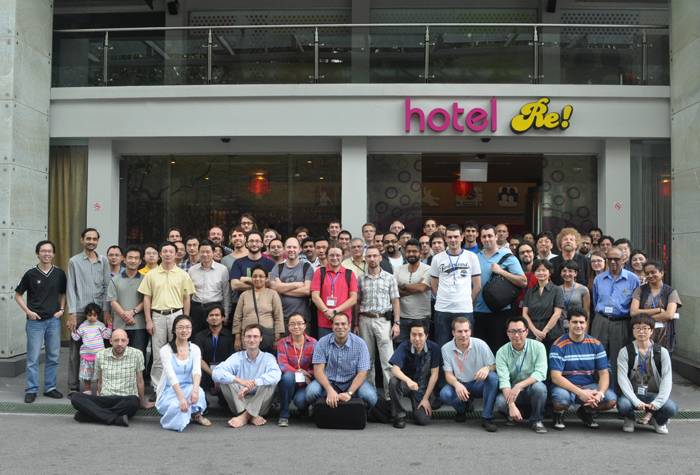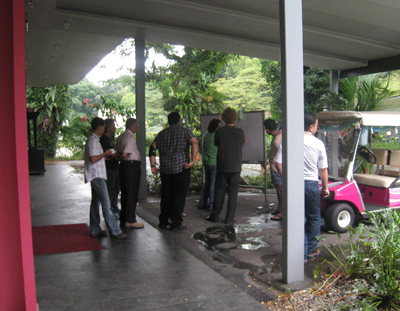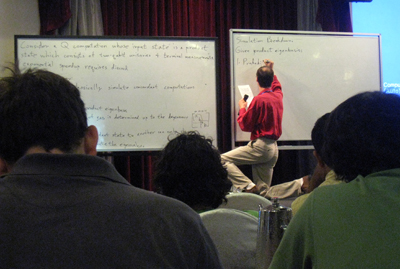Highlights
Singapore hosts first international workshop on quantum discord

The first international workshop on quantum discord was held 9-13 January in Singapore. Organised by CQT researchers Kavan Modi, Hugo Cable and Vlatko Vedral, the meeting brought together experimental and theoretical researchers to discuss what quantum discord is, and what can be done with it.
"New and exciting ideas came out of the meeting," says Kavan. To encourage collaboration among the participants, the workshop was punctuated with long breaks, held in a room lined with whiteboards and ended each day with an outing.
Having so many experts in one place created a powerful hive mind. In one talk, Kavan recounts, the speaker pointed out a conjecture they hadn't been able to prove "and in five minutes someone had a proof".


First described in papers published in 2001, discord is a measure of the quantumness of a system. The concept has recently captured the imagination of researchers studying the quantum world thanks in particular to evidence that discord may be sufficient to power quantum computations.
Previously researchers thought that quantum computers depended on the property of entanglement. That entanglement doesn't always seem to be necessary could be a boon, since entanglement is a delicate quantity that is difficult to prepare in the lab. Discord, calculated mathematically by adding up all the 'correlation' in the system, then subtracting the parts that can be explained by classical physics, is much more common.
The 70 workshop attendees heard some of the latest thinking about the idea of discord as a resource for quantum computing. There were also theoretical talks on the significance of discord in phenomena such as decoherence, measurement and quantum phase transitions.
Among the workshop participants was Wocjiech Zurek, who with Harold Ollivier was one of the first to propose the idea of discord. He gave a colloquium at CQT during the workshop week titled "Quantum Theory of the Classical". Another of the originators of the idea was one of the organisers of the meeting — Vlatko, jointly affiliated with CQT, NUS and the University of Oxford, who published on discord with L. Henderson.
Vlatko, Kavan and Hugo are among the authors of a review article on discord which was posted to the arXiv in December (arXiv:1112.6238). They seek feedback on the article before submitting it to the journal Reviews of Modern Physics, which commissioned the review.
The meeting was held at Singapore's Hotel Re. Its retro theme and pink-painted walls, were, says co-organiser Hugo, "a talking point".
There are a few more pictures on CQT's Facebook page.






